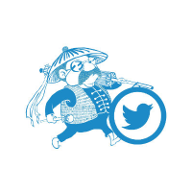









12 September 2018 by Lorna Snowflake
When I lived in Hangzhou in China in 2012, I worked as a teacher at a well-known international language school teaching English to children. One of my duties was to name any children who arrived at the school without an English name. On the one hand, I felt quite excited about the prospect of naming someone and yet on the other I saw how this responsibility could be easily be abused.
Now, naming someone is a very large responsibility and an honour. I now have child and I remember how much time I spent looking for good boys’ names which would give my son a life free of nasty nicknames or other unwanted associations. I believe there is at least a little truth in nominal determinism.
So, had my colleagues and even my boss in China seen the importance and honour of this task? No, they certainly had not. They gave out names like Bart and Homer, Sherlock and Holmes which were taken directly from popular Western fictional characters. These were always mentioned through a smile in the office. Clearly, these were more jokes than names.
In the end, I tried to choose those which sounded most like the students’ Chinese names. Or that of a friend or family member at home here in the U.K. This seemed to make the process feel a little more comfortable at the time, but I was left with a feeling that this act of renaming someone masked some important assumptions which were going unchallenged.
The first is that Chinese names are ‘too hard to say’ for English/American people and therefore should be changed. The second is that having an English name will enable the child to be more successful in line with Western aims. Both assume that Chinese culture should bend to the other; something I hope will lessen as the gap between the two cultures grows smaller.
A Chinese friend of mine remembers a similar experience during her time with an American teacher of English. This is what she told me:
“I decided not to choose any English name for myself after an unpleasant experience at my university. In my third year, our English tutor (a Chinese lady) encouraged us to participate in evening English clubs given by an American chap. My university paid for everything so we could join the clubs for free. I was very keen to improve my spoken English and thought this would be a perfect opportunity. At the end of the first class, the bubbling young American chap asked each one of us to choose an English name after the class and we could start using the names the next time the class met. I used to be fond of the name Catherine. Perhaps it might be the sound or the spelling of Catherine that made me feel it was a beautiful name.
I had been eagerly waiting for the next class to announce my beautiful English name. A week seemed a bit long. However, during the second class, when we told our American tutor in turn our chosen English names, I could see clearly a condescending sneer on his face though I could tell he was trying very hard to conceal it. The atmosphere in the classroom became increasingly strange when it was getting harder for the American chap to hide his true feelings. When it came to my turn and I said I would like to be called Catherine, he raised his tone and put on a big strange smile ‘Catherine! What a beautiful name!’ The tone was too sharp and the smile was too strange for me to believe he really meant it. I looked directly into his eyes and could only see he was truly entertained by my choice. Maybe the whole English name choosing exercise was out of his control. When he tried to match an English name to a very Chinese face, he found this experience more and more amusing and entertaining. Perhaps he thought “How can a Catherine have black eyes, hair and yellow skin?” After this English name giving class, I decided never to use an English name again.
On the contrary, I have found from my nearly 15 years of life in the UK that nearly all the British people I’ve met are keen to know my Chinese name and would make an effort to say it in the most correct and original way in Chinese. I often feel respected and understood by their sincere effort. So why bother to give myself an English name?”
So, from my own experiences and those of others I’ve certainly learned one thing which I’ll always carry with me at work: it is my first task and first act of respect, to learn and remember the real names of each and every one of my students.
Children wrote their English names in direct Chinese translation at one of Snowflake Books workshops